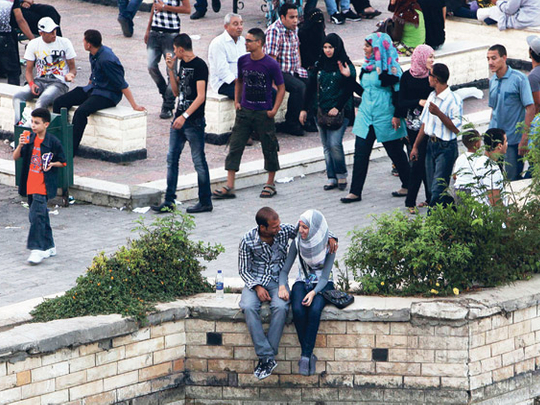
Cairo: A hi-tech weapon has been unveiled in the battle against sexual harassment in Egypt, where almost half the female population face unwanted attention from men every day.
HarassMap, a private venture that is set to launch later this year, allows women to instantly report incidents of sexual harassment by sending a text message to a centralised computer.
Victims will immediately receive a reply offering support and practical advice, and the reports will be used to build up a detailed and publicly available map of harassment hotspots.
The project utilises an open-source mapping technology more commonly associated with humanitarian relief operations, and the activists behind it hope to transform social attitudes to the harassment of women and shame authorities into taking greater action to combat the problem.
"In the last couple of years there's been a debate in Egypt over whether harassment of women on the streets is a serious issue, or whether it's something women are making up," said Rebecca Chiao, one of the volunteers behind the project.
Feeling powerless
"So HarassMap will have an impact on the ground by revealing the extent of this problem. It will also offer victims a practical way of responding, something to fight back with; as someone who has experienced sexual harassment personally on the streets of Cairo, I know that the most frustrating part of it was feeling like there was nothing I could do."
Harassment of women is believed to be on the rise in Egypt. The only significant recent study on the phenomenon was a survey by the Egyptian Centre for Women's Rights in 2008, which revealed that 83 per cent of Egyptian women and 98 per cent of foreign women have been exposed to some form of sexual harassment, including groping, verbal abuse, stalking and indecent exposure.
Contrary to popular opinion, incidents do not appear to be linked to the woman's style of dress, with three-quarters of victims having been veiled at the time. But efforts to curb the problem have met with resistance.
Do you think HarassMap will be an effective tool in the fight against sexual harassment? Would it be beneficial for other countries to adopt this technology? Should this information be available to tourists?












